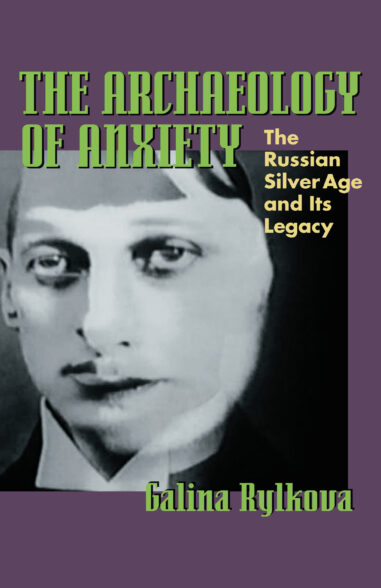

Paperback $50.00
Request Exam or Desk Copy. Request Review Copy
The Archaeology of Anxiety
The Russian Silver Age and its Legacy
"The Archaeology of Anxiety is a major contribution to the study of Russian culture, offering a much-needed history not so much of the Silver Age but of the 'Silver Age'—of the evolution of the concept and of the struggle to shape that legacy in the works of that era's survivors and heirs. Rylkova shows how the initial rejection of the Silver Age as a time of excess, experimentation, individualism, and lack of firm political purpose eventually led to the Silver Age's glorification."

